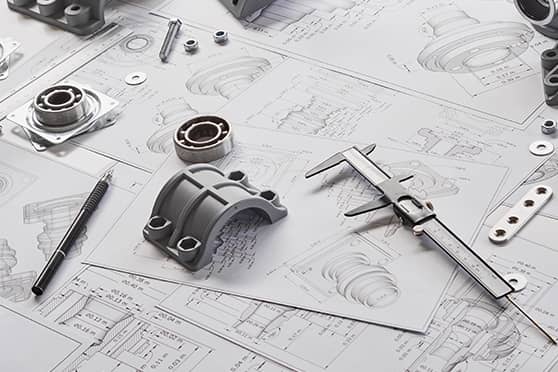Summary
A good rank in JEE Advanced or state joint entrance exams is the best way to enrol in Production Engineering courses at different institutes
Jadavpur University and IIT Kharagpur offer both bachelor’s and master’s courses in this discipline
With digital technologies revolutionising the manufacturing sector, employers are now looking for Engineering graduates who can upgrade manufacturing processes to increase productivity and improve throughputs. If you want to play a part in this global process, a BE/BTech degree in Production Engineering could be the ideal starting point.
What is Production Engineering
Production Engineering bridges the gap between science and technology in the manufacturing industry. It involves the concepts and abilities pertaining to the construction of joined designs that are used to address a production issue. This Engineering discipline requires invention, teamwork, and a creative and analytical outlook.
Studying Production Engineering:
- You need to clear your Class XII board exams or an equivalent exam with Physics, Chemistry and Maths as compulsory subjects. You need at least 75% marks for admission to IITs, NITs and GFTIs.
- You need to clear JEE Mains, conducted by the National Testing Agency (NTA), for admission to NITs, CFTIs and other engineering institutes.
- You need to clear JEE Advanced to get into IITs and IIT (ISM) Dhanbad. To be eligible for JEE Advanced, you need to be among the top 2,50,000 successful candidates (across all categories) in the BE/BTech paper of JEE Mains.
- You can also get a BE/BTech Production Engineering degree by clearing any of the joint entrance exams held by individual states.
- For a master’s degree in Production Engineering, you need to clear GATE (Graduate Aptitude Test in Engineering).
Some institutes that offer Production Engineering courses:
IIT Kharagpur, West Bengal
Course: BTech in Production Engineering.
-
Duration: Four years.
-
Admission: Depends on your rank in JEE Advanced.
Course: MTech in Production Engineering.
-
Duration: Two years.
-
Admission: Depends on your GATE rank.
Click here to learn more.
Jadavpur University, Kolkata, West Bengal
Course: BE in Production Engineering.
-
Duration: Four years.
-
Admission: Depends on your rank in the West Bengal Joint Entrance Examination (WBJEE).
Course: ME in Production Engineering.
-
Duration: Two years.
-
Admission: Depends on your GATE rank.
Click here to learn more.
Indian Institute of Engineering Science and Technology, Shibpur
Course: BTech in Production Engineering.
-
Duration: Four years.
-
Admission: Depends on your rank in JEE Mains.
Course: MTech in Production Engineering.
-
Duration: Two years.
-
Admission: Depends on your GATE rank.
Course: Dual Degree (BTech—M. Tech.)
-
Duration: Five years.
-
Admission: Depends on your rank in JEE Mains.
Click here to learn more.
National Institute of Technology, Durgapur, West Bengal
Course: BTech in Production Engineering.
-
Duration: Four years.
-
Admission: Depends on your rank in JEE Mains.
Course: MTech in Production Engineering.
-
Duration: Two years.
-
Admission: Depends on your GATE rank.
Click here to learn more.
Delhi Technological University, Delhi
Course: BTech in Production Engineering.
-
Duration: Four years.
-
Admission: Depends on your rank in JEE Mains.
Course: MTech in Production Engineering.
-
Duration: Two years.
-
Admission: Depends on your GATE rank.
Click here to know more.
National Institute of Technology, Rourkela, Odisha
Course: BTech in Production Engineering.
-
Duration: Four years.
-
Admission: Depends on your rank in JEE Mains.
Course: MTech in Production Engineering.
-
Duration: Two years.
-
Admission: Depends on your GATE rank.
Click here to learn more.
Studying abroad:
Production Engineering is one of the most in-demand engineering courses around the world. Here’s a list of foreign institutes that offer such courses:
- Massachusetts Institute of Technology (MIT), US
- Stanford University, US
- Harvard University, US
- University of Manchester, UK
- Imperial College London, UK
- University of Queensland, Australia
- National University of Singapore, Singapore
Job roles with a degree in Production Engineering:
-
Management engineer: They apply their expertise and abilities to develop, implement, and manage business processes and strategies for various departments within the organisation.
-
Senior manager: They are in charge of planning and directing the activities of a group. They keep an eye on the job and take corrective measures in case of any system glitch.
-
Production manager: They supervise and improve manufacturing processes at factories and plants. They also plan and organise the production schedule.
-
Quality control manager: They ensure that the company's products fulfil quality standards before being released to the market. They must also be aware of the customer's expectations and wants and work in accordance with them.
-
Plant production manager: They visit various plants and guarantee that every bit of the manufacturing process is being done in compliance with rules and regulations.
Last updated on 26 Apr 2022

